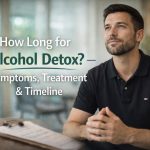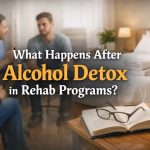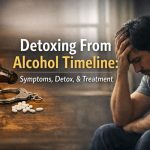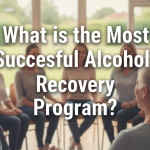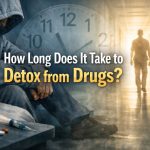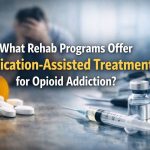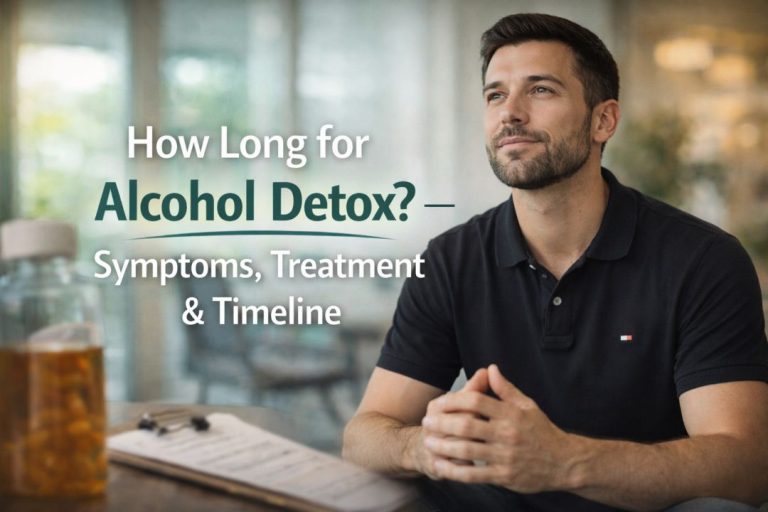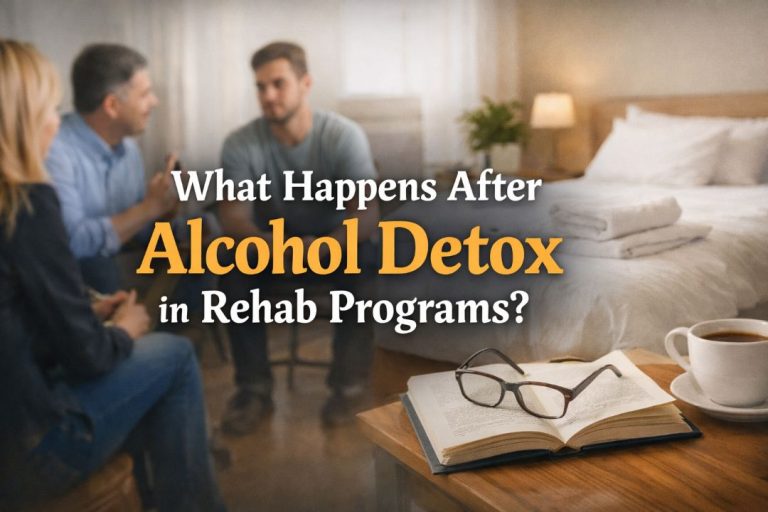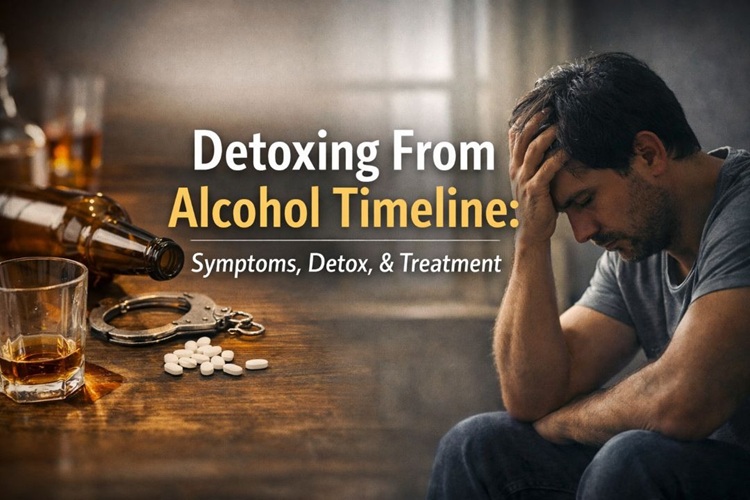Understanding how borderline personality disorder (BPD) connects to addiction is essential for helping a loved one who may be struggling with or in recovery from both conditions. This guide explains the signs, symptoms, and treatment options for individuals facing both issues.
Borderline Personality Disorder Explained
Borderline personality disorder is a mental health condition characterized by unstable moods, behavior, and relationships. People with BPD often have strong feelings of anger, depression, and anxiety. These episodes can last from a few hours to several days.
These emotional swings can lead to difficulty with impulse control and problematic relationships.
How BPD and Addiction are Connected
BPD and addiction often go together. Many people with BPD struggle with substance use. Understanding this connection can help in finding the proper support and treatment.
BPD involves issues with emotions, relationships, and self-image. People with BPD may feel intense emotions and have trouble managing them. They might engage in risky behaviors, including alcohol or drug use, as a way to cope with their feelings.
Addiction can make the symptoms of BPD worse. For example, using drugs or alcohol might provide temporary relief, but can lead to more problems in the long run. This cycle can be hard to break, as both issues feed into each other.
Treatment for someone with BPD and addiction often requires a dual approach. Therapy can help address the underlying issues of BPD while also providing strategies for overcoming addiction. Support groups and a strong network of family and friends can make a big difference.
If you or someone you know is struggling with both BPD and addiction, it’s essential to seek professional help. There are many resources available to support recovery.
People with BPD are more likely to experience addiction than the general population. This tendency is often due to attempts to self-medicate the emotional pain associated with BPD.
Substances like alcohol or drugs may provide short-term relief, but they make the problem worse. This creates a complicated cycle of dependence and emotional pain.
Signs of Addiction in People with BPD
Recognizing addiction signs in someone with BPD can be challenging, as symptoms might overlap. However, some common indicators include:
- Increased use of substances despite negative consequences
- Frequent mood swings related to substance use
- Neglecting responsibilities at home, work, or school
- Engaging in risky behaviors while under the influence
100% Confidential Support is Available 24/7
No matter what you’re going through, you’re not alone. Our dedicated team is here to provide a safe, judgment-free space where you can talk openly and honestly. Whether you need emotional support, resources, or just someone to listen.
We’re here for you—completely confidential and always respectful of your privacy. Call us today!
Symptoms of BPD and Addiction
Those struggling with both BPD and addiction may exhibit a range of symptoms that affect their daily life. It’s crucial to identify these symptoms to understand the severity of the situation and seek appropriate help.
Emotional and Behavioral Symptoms
- Intense fear of abandonment
- Chronic feelings of emptiness
- Impulsive and self-destructive behaviors
- Unstable self-image
Physical Symptoms
- Changes in appetite or sleep patterns
- Decline in physical appearance
- Development of health problems related to substance use
Contact Solutions Healthcare
Battling with Drug and Alcohol Addition? Remember, you are not alone and we are here to help you!
Treatment for Borderline Personality Disorder and Addiction
Effective treatment for people with both BPD and addiction needs a complete approach. This approach should focus on both the mental health disorder and the addiction. Here are some standard treatment options:
Psychotherapy
Behavioral therapies are at the core of treating both addiction and personality disorders like BPD. These may include:
- Dialectical Behavior Therapy (DBT): Specifically designed for BPD, DBT focuses on teaching coping skills to manage emotions, reduce self-destructive behaviors, and improve relationships.
- Cognitive Behavioral Therapy (CBT): Helps patients identify and change negative thought patterns and behaviors that contribute to their addiction.
Medication
While no medications can cure BPD, certain medications may help alleviate some symptoms. Antidepressants, antipsychotics, or mood stabilizers can be part of a treatment plan to manage mood swings and depression.
Integrated Treatment Programs
Programs that combine mental health care and addiction treatment can be particularly beneficial. They ensure that both conditions are treated simultaneously, providing a more holistic approach to recovery.
Support Groups
Support groups offer individuals the opportunity to share their experiences and learn from others facing similar challenges. Groups like Alcoholics Anonymous (AA) or Narcotics Anonymous (NA) can provide ongoing support and accountability.
Advice when Helping a Loved One Through BPD and Addiction
Supporting a loved one with BPD and addiction requires patience, understanding, and access to the right resources. Here are some tips:
Educate Yourself
Understanding the nature of BPD and addiction can help you provide better support.
Encourage Treatment
Gently encourage your loved one to seek professional help and attend support groups.
Establish Boundaries
Set clear boundaries to protect your well-being while supporting your loved one.
Practice Self-Care
Ensure you are also taking care of your physical and emotional health.
The Importance of Treating Co-Occurring Disorders
Borderline personality disorder and substance use disorder can be particularly dangerous when they occur together and remain untreated.
Impulsive behaviors, self-harm, and suicidal thoughts associated with borderline personality disorder may worsen with substance use. Individuals with both disorders often face more challenges in treatment and are more likely to be hospitalized.
Comprehensive treatment that addresses both disorders simultaneously can lead to better recovery outcomes. It is crucial to find treatment programs that are skilled in dealing with co-occurring disorders. This helps ensure that effective care and support are provided.
100% Confidential Support is Available 24/7
No matter what you’re going through, you’re not alone. Our dedicated team is here to provide a safe, judgment-free space where you can talk openly and honestly. Whether you need emotional support, resources, or just someone to listen.
We’re here for you—completely confidential and always respectful of your privacy. Call us today!
Find Treatment for Borderline Personality Disorder and Addiction Today
At Solutions Healthcare, we offer comprehensive, research-backed treatment for people with both BPD and substance use problems. This treatment is available in residential and intensive outpatient settings. Inpatients benefit from continuous medical oversight and assistance, while outpatients enjoy more flexible scheduling to manage essential life commitments outside of the facility.
Recovery from addiction is an ongoing journey. We offer aftercare planning services for all of our patients. These resources help encourage long-term recovery goals and provide support from peers.
References
- National Library of Medicine: Borderline Personality Disorder and Comorbid Addiction
- Johns Hopkins Medicine: Borderline Personality Disorder
- Substance Abuse and Mental Health Services Administration: Screening and Treatment of Co-Occurring Disorders







